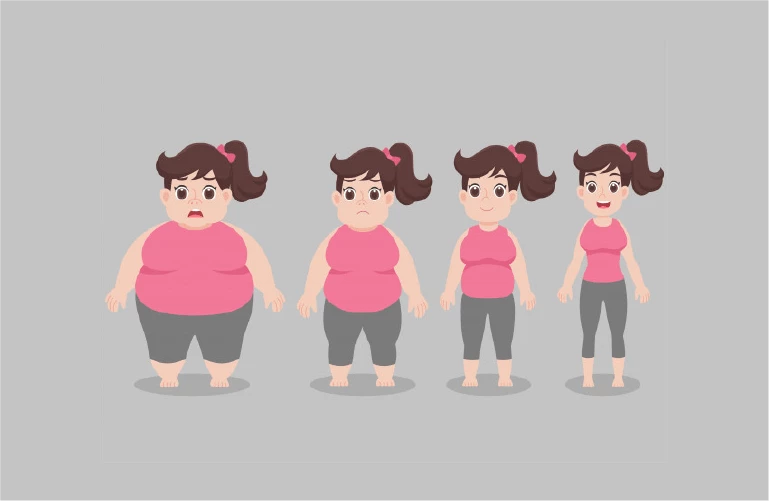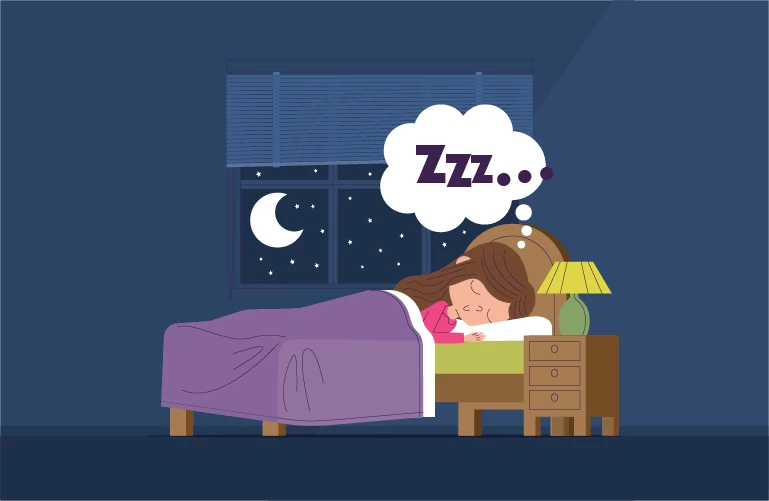Subordinating conjunctions
Conjunctions in English are one of the most common and frequently used grammar topics. As the name suggests, conjunctions have the role of connecting phrases, sentences and paragraphs together. Conjunctions are divided into 3 main types with different roles and meanings. Let's learn about dependent conjunctions with EnglishTopVN.
1. Concepts
Subordinating conjunctions used to Connect 2 clauses in a sentence together. The clause that begins with a subordinating conjunction is the dependent clause, the remaining clause is the main clause.
For example:
- I didn't go to school because it rained.
- because it rained → dependent clause
- I didn't go to school → main clause
Subordinating conjunctions Establishes a relationship between two clauses in a sentence.
It could be a cause-effect relationship; conditional relationship

I didn't go to school because it rained.
2. Position of subordinating conjunctions and dependent clauses in the sentence
Subordinating conjunctions go at the beginning of dependent clauses.
- Because it rained, I didn't go to school.
In the dependent clause "because it rained", the dependent conjunction comes at the beginning of the clause.
- She went to school although she was sick.
- In the dependent clause "although I was sick", the dependent conjunction comes at the beginning of the clause. TIn a sentence, a clause containing a dependent conjunction can come before or after the clausemain.
- The following two sentences are equivalent in meaning:
-
I didn't go to school because it rained. = Because it rained, I didn't go to school.
-
She went to school although she was sick. = Although she was sick, she went to school.

Although she was sick, she went to school.
3. Subordinating conjunctions of time
- Subordinating conjunctions express events happening at the same time
To express events A Happens at the same time With event B, we can use the following subordinating conjunctions:
- when
- while
- as
Usage is:
-
[Incident A] when/while/as [Incident B].
-
When/While/As [Incident B], [Incident A].
For example:
-
His phone rang while he was eating dinner.
-
When his phone rang, he was eating dinner.
Even though event A and event B happen at the same time, if the length of time the event occurs is different, then we use when, while or as different.
If event B happens in a relatively short time or in a flash → is only used when, not used while or as.
- If event B occurs over a relatively long period of time → all 3 can be used, but usually while and as than when.
We can see it right away in the example above:
The incident "the phone rang" and the incident "he had dinner" happened at the same time. However, "the phone rang" is quite short, and "he had dinner" is quite long, so we have to use when/while/as corresponding.
- His phone rang while he was eating dinner.
→ use while or as because "he is having dinner" is a long story.
-
When his phone rang, he was eating dinner.
→ use when because "the phone rings" is a short event.
Some other examples:
-
My mother were cooking in the kitchen when she heard a scream outside.
→ The incident of "hearing screams on the street" only happens in a split second, so we have to use it when, do not use while or as.
-
My mother did the dishes while my father cleaned the house.
→ The event "washing the dishes" and the event "cleaning the house" both take place over a relatively long period of time, so we often use while or as than when.

My mother did the dishes while my father cleaned the house.
- Subordinating conjunctions Express an event that happens at a certain time
To express an event happening at a certain time, we use the following subordinating conjunctions:
- when
- whenever
For example:
-
When John was five years old, his family moved to the US.
-
When John turns 18 years old, he will move out.
-
John calls his mother when/whenever he feels lonely.
- Subordinating conjunctions Expresses an event that happens before or after another event
To express that one event happens before or after another, we use the following subordinating conjunctions:
- before
- after
For example:
-
Before I arrived at the office, she had left.
-
I arrived at the office after she had left.
-
I always brush my teeth before I go to bed.
-
After he retired in 2010, he traveled the world.

After he retired in 2010, he traveled the world.
- Subordinating conjunctions Expresses events that started happening from a certain point in time
To express that something started happening from a certain point in time, we use a dependent conjunction since:
- since
For example:
-
Tom hasn't called us since he left for Berlin.
-
Since he left school, he has had three different jobs.
- Subordinating conjunctions Expresses an event that continues until another event happens, then stops
To express that an event continues until another event stops, we use a subordinating conjunction until:
- until
For example:
-
They sat on the beach until the sun went down.
-
Until she spoke, nobody knew she could speak English.
-
He polished his shoes until they shone.

They sat on the beach until the sun went down.
4. Subordinating conjunctions of place
To express an event happening at a certain place, we use the following subordinating conjunctions:
- where
- wherever
For example:
-
Please sit where I can see you.
-
Wherever you go, I follow.
5. Subordinating conjunctions show causes and reasons
To express the cause or reason of an event, we use the following subordinating conjunctions:
- because
- since
- as
- seeing that
- now that
For example:
-
I've cut down on soda because I'm trying to lose weight.
-
Since the train was delayed for more than an hour, passengers were given a full refund.
-
As it was getting late, we decided to go home.
-
We could go and visit Wendy, seeing that we have to drive past her house anyway.
-
Now that I live close to work, I often walk to work.

I've cut down on soda because I'm trying to lose weight.
6. Subordinating conjunctions show purpose
To express the purpose of an event, we use the following subordinating conjunctions:
- so (that)
- in order that
For example:
-
John stayed at work late so (that) he could complete the report.
-
I gave John a map so (that) he wouldn't get lost.
-
All relevant information has been provided in order that students can choose the best course.

John stayed at work late so that he could complete the report.
7. Subordinating conjunctions indicate contrast and opposition
In case we want to talk about event A contrast opposite With event B, in English there are two types:
- Unexpected opposition: Without logical reasoning, event A cannot logically happen when event B happens.
- Pure opposition: Following logical reasoning, simply say that fact A is different from fact B.
For example:
-
While John grew up in Spain, he can't speak Spanish.
→ According to common sense, because he grew up in Spain, John must know how to speak Spanish, but in reality he does not. This is an unexpected contrast.
-
While John grew up in Spain, his sister grew up in the US.
→ This sentence simply says that the growing up circumstances of two people are different. This is a mere contrast.
For the case unexpected opposition, we can use the following subordinating conjunctions:
- although
- though
- even though
- while (when used while in this sense, the clause has while cannot come after the main clause)
For example:
-
Although the dish looked pretty, it tasted really bad.
-
I enjoyed her new novel though it's not as good as her last one.
-
Even though the night air was hot, she slept soundly.
-
While I am willing to help, I do not have much time available.
For cases pure opposition, we can use the following subordinating conjunctions:
- while
- whereas
For example:
-
Ben gets lots of homework from school, while Chris gets very little.
-
He must be about 60, where as his wife looks about 30.

Even though the night air was hot, she slept soundly.
8. Subordinating conjunctions show comparison
- Subordinating conjunctions compare two things that are similar
To compare two things that are similar, we use the following subordinating conjunctions:
- like
- as
For example:
- You should do it like I showed you.
- As I said yesterday, the work schedule has been changed.
- She sings as beautifully as a singer (does).
- Subordinating conjunctions Compare two things better or worse
To compare more or less, we use the following subordinating conjunctions:
- than
For example:
- This problem is more difficult than that one (is).
- The price was higher than we had expected.
- Subordinating conjunctions compare between a true event and an untrue event
To express a comparison between a real thing and an unreal thing, we use the following subordinating conjunctions:
- as if
- as though
For example:
-
After the interruption, the speaker went on with his speech as if nothing had happened.
→ We are comparing a real event (the speaker continues his speech) with an unreal event (nothing happened).
-
When I told them my plan, they looked at me as though I was mad.
→ We are comparing a real thing (they look at me) with an unreal thing (I'm crazy).
-
I don't like Tim. He talks as if he knew everything.
→ We are comparing a real thing (he talked) with an untrue thing (he knew everything).

As I said yesterday, the work schedule has been changed.
Important Note: because of the events inside the clause as if and as though is not real, so we express this "unreal" by "referring tense":
-
Unreal in the present → past tense verb
-
When I told them my plan, they looked at me as though I was mad.
-
-
Unreal in the past → verb in past perfect tense
-
After the interruption, the speaker went on with his speech as if nothing had happened.
-
Besides, in everyday speech, we can also use conjunctions like instead as if or as though but the saying still retains its meaning. However then, clause like there will be no need to "postponement".
- Compare the following examples:
- John looked scared like he had just seen a ghost.
→ The event "encountering ghosts" was not real in the past, so we have to move back to the past perfect tense.

